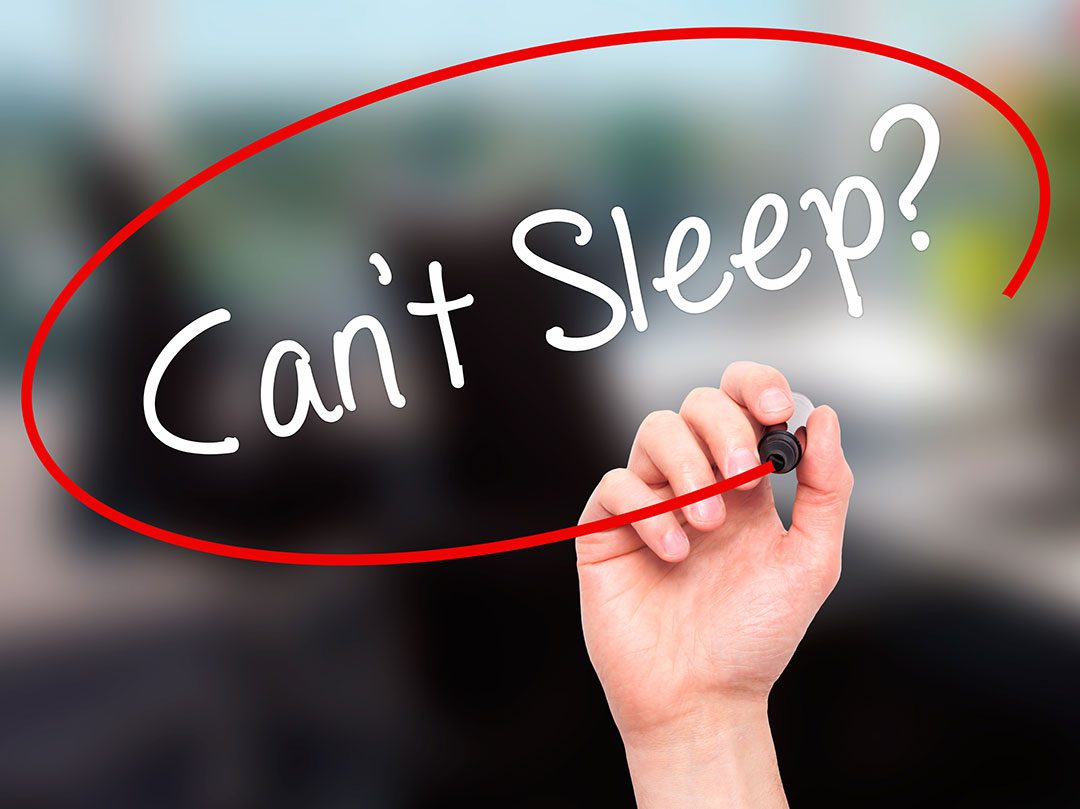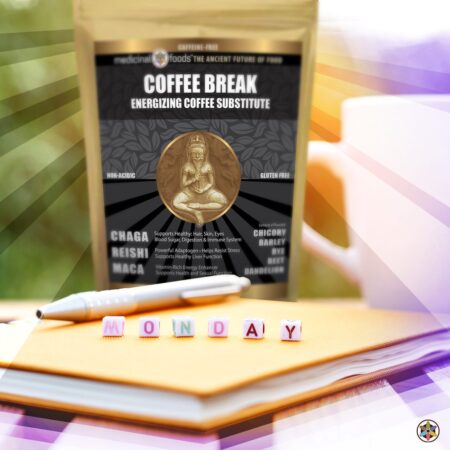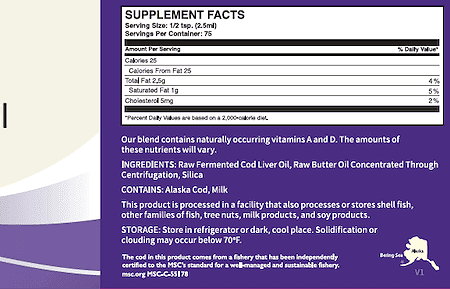Let’s take a look at the various types of insomnia medicine as well as some tips for dealing with sleeplessness caused by medication.
There are many ills in the world, ills that affect us all. It is these ills that medicine tries to cure so they do not devastate us as much.
However, there are ills and diseases for which there is no cure and we might need to learn to live with them or seek the best relief possible.
Insomnia is a very common ailment and affects the lives of millions around the world. It can be defined as a disorder where one cannot sleep well, or awaken too early.
This means that sufferers who have insomnia find it difficult to get enough rest before their day starts. Stress and anxiety are some of the most common reasons people toss and turn at night.
Surveys estimate that about 24% to 36% of people with insomnia have an anxiety disorder, and these 2 problems can feed off each other.
If your anxiety is interfering with your sleep, it can seem like a waking nightmare. But there are many treatments to help you get some shuteye again.
Insomnia is a sleep disorder that can take on several different forms. It doesn’t necessarily mean not sleeping at all—though that would certainly qualify as insomnia.
You may not get enough sleep, or the sleep that you get is poor quality. Symptoms of insomnia can include, Trouble falling asleep, staying asleep, Waking up early, and not being able to get back to sleep.
You may have trouble sleeping because of a stressful situation, and your insomnia may only last for a few days or weeks.
<壯陽藥
p>But insomnia can also be chronic, meaning you could have trouble sleeping for months.
Anxiety is one possible cause of insomnia, but there are many others, including certain medical conditions and lifestyle habits, like drinking too much caffeine for example.
The nighttime hours are quieter and there isn’t as much going on, which gives you more time to think. You may focus on fears or other things in your life that are bothering you, which can make it hard to relax and fall asleep.
In addition, researchers acknowledge that anxiety can cause you to have some "false alarms" of danger throughout the day. These episodes can lead to a state of feeling on the edge, which can make it harder to fall and stay asleep.
Some people may also fear falling asleep, which is known as somniphobia. They may be scared of having nightmares, dying in their sleep, or sleep paralysis.
Researchers have also scanned the brains of people who haven’t slept well to look very similar to the brains of people with anxiety disorders.
The sleep-deprived brain produces more stress hormones like cortisol, which can make you feel more on edge.
Insomnia can come before anxiety disorders or make the symptoms of anxiety disorders worse. The two can also feed off each other.
If you have enough sleepless nights over time, you may start to worry that you won’t ever get good sleep, which can lead to more anxiety and less sleep.
Sleep plays many important functions in your health. It helps you learn and form new memories, and it removes toxins. your brain that builds up while you’re awake.
After a sleepless night, it can be harder for you to concentrate on work or school, and you’re more at risk for accidents or injuries. In addition to increasing your risk for anxiety disorders or making them worse.
A lack of sleep or poor sleep over a long period of time can increase your risk for many health problems, including depression, diabetes, High blood pressure, and heart disease.
In short, sleep is vital to your physical and mental health. Besides helping to improve your anxiety, a regular good night’s sleep can make you feel more alert and refreshed.
Pain can cause insomnia. Certain medications, including popular ones for ADHD, asthma, Even antidepressants you may have been prescribed for anxiety can cause insomnia.
Symptoms of health conditions related to the heart, blood vessels, lungs, thyroid, stomach, and brain can keep you awake at night.
Some people wake up many times a night due to sleep apnea (a health condition in which your breathing stops and starts during sleep) or have other sleep disorders.
such as restless leg syndrome, which creates an uncontrollable urge to move your legs, typically while you are trying to go to sleep.
You may not notice some of these, but a partner will.
If you have any of these conditions, treating them may help your insomnia.
If your insomnia is directly related to your anxiety, your provider will likely recommend psychotherapy, medication, or a combination of both.
Your exact treatment will depend on your individual circumstances and how severe your symptoms are. Your provider may decide to treat your anxiety or insomnia separately, or both at the same time.
Over the counter medicine for insomnia
Medications that are used to treat insomnia include the following. Benzodiazepines and antidepressants can also be used to treat anxiety.
These include prescription medications, They help you fall asleep or stay asleep, but they do come with side effects and can be habit-forming.
Anxiety or insomnia is severe, and they will typically be prescribed at the lowest possible dose for the shortest amount of time because they can also be habit-forming.
They mimic a natural substance that occurs in your body called melatonin, which helps regulate your sleep-wake cycle.
Your provider may also recommend therapy to help you manage your anxiety and insomnia.
The most popular therapy used for these 2 conditions is cognitive-behavioral therapy (CBT).
This method involves exposing you to the source of your anxiety in a safe, controlled way to help you overcome the fear. Your therapist may ask you to confront the fear directly.
Imagine a particular situation. working with you to target distorted thoughts that may lead to anxious feelings and harmful behaviors. For example, they might ask you to evaluate the pros and cons of thinking or acting a particular way and help you think of new ways to view a situation.
There’s also CBT for insomnia (also known as CBT-I), which focuses on identifying and correcting thoughts and behaviors that can fuel insomnia, as well as helping you develop healthier sleep habits.
If you’re having serious problems falling asleep due to anxiety or another condition, it’s best to see a professional. Along with following their recommendations, you can try some of these tips to help improve your sleep:
Best medicine for insomnia
The best is often natural for those who can find relief this way.
Practicing meditation or doing deep breathing exercises before you go to bed may help you relax and fall asleep.
Also natural herbs may help regulate the hormones that help us to stay within natural sleeping paterns.
Exercise
Exercise may help you fall asleep faster and improve the quality of your sleep. Just remember that exercising releases endorphins ("feel good" chemicals in your brain) and raises your core body temperature, so it may keep you up if you do it late in the day.
It’s best to exercise in the morning or afternoon to practice good sleeping habits. Go to bed at the same time every night and wake up at the same time each morning.
Light and Electronics
If you don’t fall asleep within 15 minutes or so, go to another room and do something relaxing, like reading. Don’t turn on the television or any other electronics.
Blackout curtains may help you block out light. Also, train yourself to associate your bed with sleep—don’t work, use your computer, or watch TV in bed.
Drinks
Coffee, soda, and other caffeinated drinks can keep you up at night. But there are many healthier non-cafeine alternatrives. Alcohol may help you fall asleep at first, but it can also disrupt sleep, particularly in the second half of the night.
Weighted blankets contain pellets or small plastic balls that make them heavier. For some people, this added weight gives them a feeling of safety, security. Aromatherapy involves the use of oils or scented candles to help people relax.
Essentially have to guess what the right dose is, which can be risky. Some studies suggest that effective doses of several hundred milligrams for social anxiety may be helpful. But until CBD goes through rigorous clinical trials and is approved by the FDA, we really won’t know what the safest and most effective dose is. On top of that, CBD’s side effects and interactions with other
medications aren’t fully known. (cannabidiol), a chemical from Cannabis plants is advertised as a treatment for anxiety and insomnia (along with many other conditions). Several studies have looked at the use of CBD to treat and how it may help with both anxiety and insomnia.
The results have been somewhat positive effects. In one study, researchers asked adults with anxiety or poor sleep to take CBD and then assessed their anxiety and sleep quality over time. After the first month, anxiety scores improved in 79% of adults, and sleep scores improved in 67% of adults.
The average anxiety score kept improving over the 3 months of the study, but the average sleep score only improved for the first 2 months and then got worse in the third month.
Insomnia can also be a side effect of some medications. Anxiety can disrupt sleep in a few ways.
Many people experience short-term insomnia. This common sleep disorder can make it difficult to fall asleep and stay asleep until it’s time to wake up.
Although the amount of sleep needed varies from person to person, most adults need at least seven hours of sleep a night. If your sleeping patterns are affecting your quality of life, home remedies may be able to help.
Keep reading to learn how you can take charge of your sleeping patterns through meditation, exercise, and other home remedies.
Meditation
Mindfulness meditation consists of slow, steady breathing while sitting quietly. You observe your breath, body, thoughts, feelings, and sensations as they arise and pass.
Mindfulness meditation has numerous health benefits that go hand-in-hand with a healthy lifestyle promoting good sleep. It’s said to reduce stress, improve concentration, and boost immunity.
Researchers in a 2011 study trusted Source found that meditation significantly improved insomnia and overall sleep patterns. Participants attended a weekly meditation class, a daylong retreat, and practiced at home for a few months.
You can meditate as often as you like. If you don’t have time for a longer session, aim to do 15 minutes in the morning or evening. Consider joining a meditation group once a week to stay motivated. You may also choose to do an online guided meditation.
Meditation is safe to practice, but it has the potential to bring up strong emotions. If you feel it is causing you further angst or turmoil, discontinue the practice.
Repeating a mantra or positive affirmation repeatedly may help focus and calm your.
In conclusion, the best insomnia medicine can be natural medicine if it works for you.


























